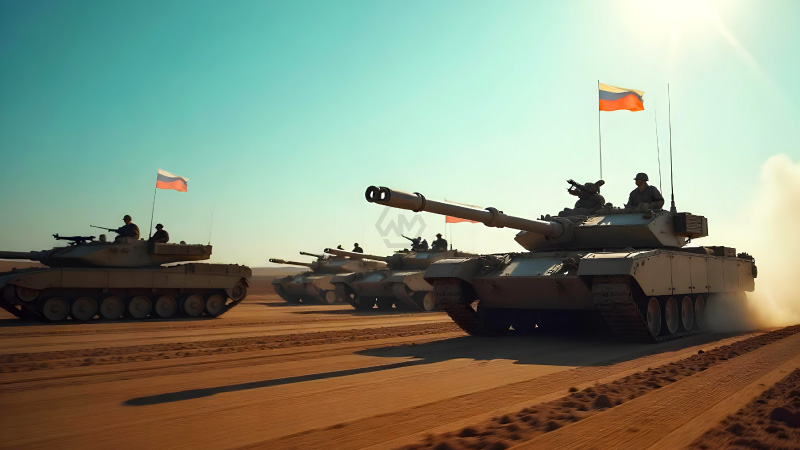- Russia moves S-300/S-400 systems and personnel from Syria to Libya to strengthen its military presence in Africa.
- Libya’s coastal location offers strategic advantages for operations in the Sahel and beyond.
- Despite instability, Russia’s support for Haftar enhances its influence and military leverage in the region.
Russia’s decision to transfer military assets from Syria to Libya is driven by its broader strategic goals in Africa. The move includes sophisticated air defense systems and military personnel aimed at enhancing Russia’s ability to project power across North Africa, particularly in the Sahel region.
Libya’s proximity to critical regions like Mali and Sudan makes it an essential hub for Russian operations.
Russia Expands Its Strategic Military Presence in Libya
Simultaneously, the transfer of assets serves as a hedge against potential instability in Syria. While Russia maintains its military presence in Syria, it recognizes the increasing risks tied to its relationship with the Hayat Tahrir al-Sham (HTS)-led government. By reinforcing its presence in Libya, Russia can better navigate shifts in Syrian politics while consolidating its military and geopolitical influence across the Mediterranean and North Africa.
Despite facing political instability in Libya, Russia’s support for the Libyan National Army (LNA), led by Khalifa Haftar, has allowed it to maintain influence over eastern parts of the country. Moscow has also engaged in diplomatic efforts to secure military basing rights, recognizing Libya’s potential as a logistical hub for operations across Africa. Russia’s growing presence in Libya is seen as an effort to fill the void left by declining Western influence in the region.
This military redeployment also acts as a strategic hedge against any potential shifts in Syria’s political landscape, particularly after the ouster of Syrian President Bashar al-Assad. Although Russia’s bases in Syria remain operational, the political uncertainty in Syria means that Russia is keen to strengthen alternative footholds in the region, with Libya offering a viable option.
Moreover, Russia’s expanded presence in Libya is being met with resistance from the Tripoli-based Government of National Unity (GNU). Despite threats from Libyan officials, Russia remains confident in its ability to maintain influence with both eastern and western factions in Libya. Russia’s ties with regional powers like the UAE and Turkey also bolster its position in the country.
Russia’s growing military presence in Libya reflects its intent to strengthen its strategic footprint in Africa, offering an alternative to its base in Syria while deepening its influence in the region.
“Libya offers something potentially more valuable – shorter routes into the Sahel and closer proximity to NATO’s southern flank.” — Anas El-Gomati



